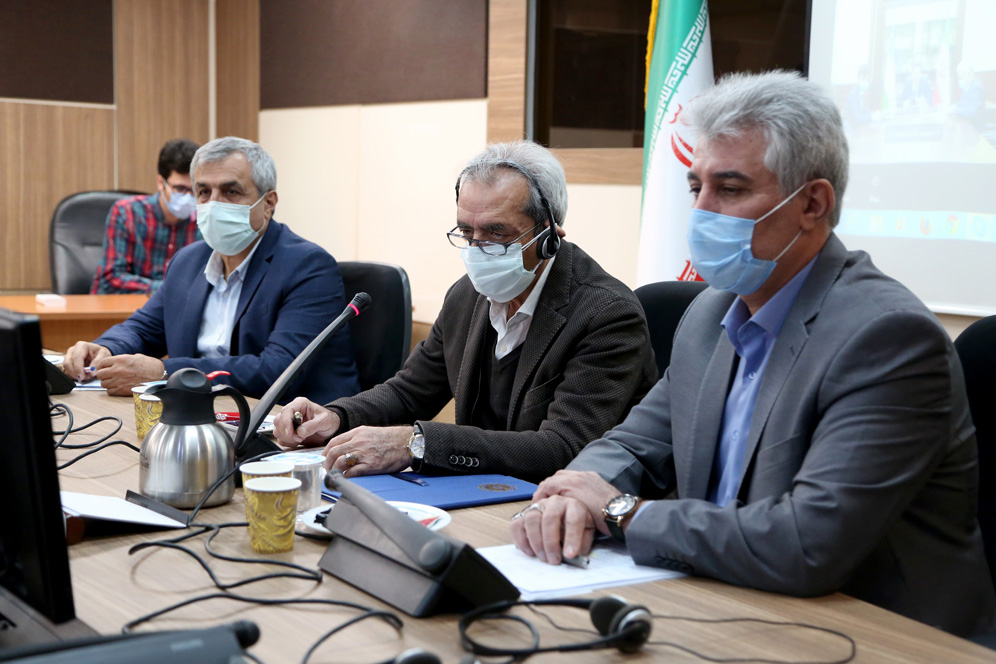Iran and Uzbekistan chambers of commerce have signed a Memorandum of Understanding (MoU) that paves the way for the creation of a joint trade committee between the two countries.
Iran Chamber of Commerce, Industries, Mines and Agriculture (ICCIMA) President Gholam Hossein Shafei and Uzbekistan Chamber of Commerce and Industry President Ikramov Adkham Ilkhamovich signed the document during a video conference.
Emphasizing that strengthening economic cooperation and increasing trade with neighboring countries is one of the most important priorities of the Islamic Republic of Iran, Shafei stressed that Uzbekistan is of high importance to Iran due to its cultural, historical, economic, and geographical commonalities.
He named Iran as "Uzbekistan's link to the world" due to Iran's strategic location and access to the Persian Gulf and the Sea of Oman.

ICCIMA President Gholam Hossein Shafei (center) talks to Uzbekistan Chamber of Commerce President Ikramov Adkham Ilkhamovich via video conference.
Iran Chamber of Commerce president highlighted the role of the country in supplying the required energy of the regional countries as well as its strategic transit location in the region, saying that "Iran's special position in the region, both in terms of security and geopolitics, has provided foreign investors with a stable future prospect".
.jpg)
Shafei, however, noted that without removing banking barriers and problems, reducing customs tariffs, reducing transportation costs and providing the necessary facilities in the field of rail transport and increasing active wagons between the two countries, it will not be possible to increase the volume of trade.
"Although the two countries' trade volume has increased from $186 million in 2018 to $411 million in 2019, a comparison of the two countries' capabilities shows the need for more efforts to remove existing barriers," he added.